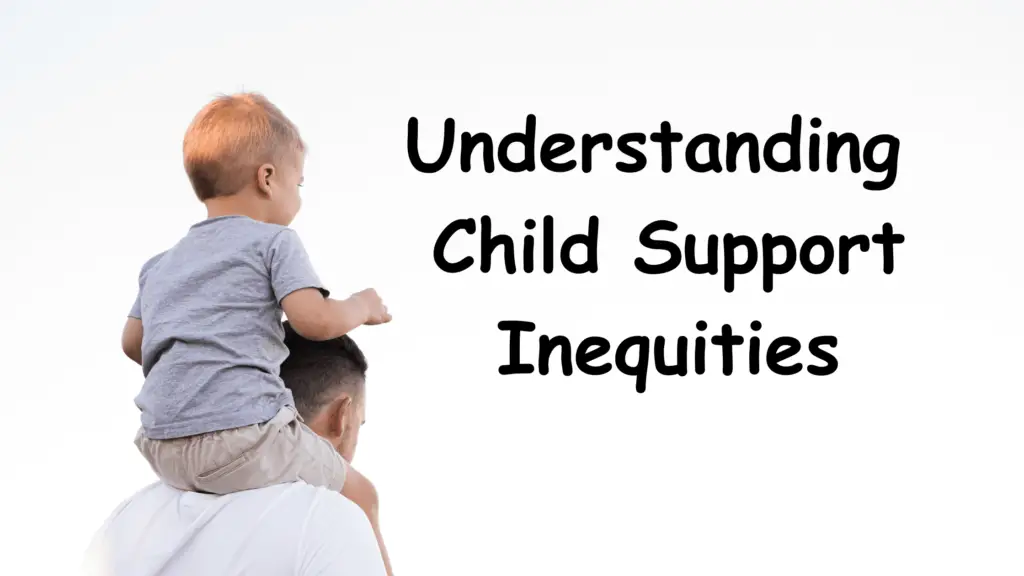Child support is a fundamental aspect of the legal framework designed to ensure the financial stability and well-being of children whose parents have separated or divorced. However, for many fathers, navigating the child support system can be a source of frustration and perceived injustice.
So, why is child support so unfair to fathers? Well, child support is not inherently unfair to fathers. However, there are some ways in which the current child support system can be unfair to fathers. These include the presumption of parental responsibility, the formula-based approach to calculating child support, lack of enforcement of child support orders and the stigma associated with being a “deadbeat dad.”
The Presumption of Parental Responsibility
A fundamental challenge fathers often confront within the child support system pertains to the presumption of parental roles. In many instances, the court automatically assumes that the mother serves as the primary caregiver, while the father is cast as the primary provider. This presumption can be intrinsically unjust for fathers who are enthusiastic and prepared to assume more involved roles in their children’s upbringing.
The assumption that mothers are naturally better caregivers can lead to fathers feeling marginalized in custody decisions and child support determinations. This bias can have far-reaching implications, affecting both visitation rights and financial obligations. Fathers who are fully capable of providing emotional and physical care for their children may find themselves relegated to secondary roles based on outdated gender stereotypes.
The Formula-Based Approach to Calculating Child Support
Child support payments are typically calculated using a formula that takes into account the incomes of both parents and the amount of time the children spend with each parent. While this formula-based approach is intended to provide a consistent and fair method for determining child support, it can inadvertently result in perceived injustices for fathers.
For fathers with lower incomes, this formula can lead to child support payments that feel disproportionately burdensome. These payments may leave fathers struggling to meet their other financial responsibilities, including housing, utilities, and their own basic needs. Consequently, fathers may feel overwhelmed and unfairly treated by a system that seems insensitive to their unique financial circumstances.

The Income Disparity Issue
Income disparities between fathers and mothers represent another substantial element contributing to the perceived inequity within the child support system. Frequently, fathers outearn mothers, resulting in increased child support obligations. Although these payments aim to meet the children’s requirements, they can also impose financial stress on fathers.
It’s crucial to acknowledge that income disparities can also manifest in the opposite direction. Certain fathers may earn considerably less than mothers, and in such instances, child support may not adequately cover the children’s necessities. This can leave fathers with a sense that they bear an unjust financial load or struggle to meet their financial commitments.
Custody Arrangements
Custody battles are emotionally and financially taxing experiences for parents, but they can have a particularly significant impact on fathers. The court’s determination of custody arrangements can significantly influence child support payments, creating situations where fathers have limited time with their children but still face substantial financial obligations.
This situation can be especially challenging for fathers who desire active involvement in their children’s lives but are awarded limited custody or visitation rights. It can leave them feeling that they are unfairly shouldering a disproportionate financial responsibility, particularly when custody arrangements do not reflect the level of care and involvement they seek to provide.
Read About: Penalty for Hiding Income for Child Support
The Lack of Enforcement of Child Support Orders
There are cases where fathers face real difficulties fulfilling their child support responsibilities, often stemming from financial hardships or difficulty finding stable employment that yields enough income. Unfortunately, enforcing child support orders may not consistently yield results, leading to significant financial burdens and, in extreme situations, leaving the father in debt and unable to adequately support his children.
The enforcement of child support orders stands as a critical pillar of the system’s functionality. Nevertheless, it can occasionally fall short, placing fathers who sincerely aspire to fulfill their financial responsibilities in a precarious position. This underscores the necessity for a more nuanced approach to enforcement that takes into account the unique circumstances of each parent.
The Stigma Associated with Being a “Deadbeat Dad”
Fathers who struggle with child support payments often face an additional burden—the stigma of being labeled as “deadbeat dads.” This negative label can have severe consequences, making it difficult for fathers to secure employment, housing, and even custody of their children.
It’s essential to recognize that not all fathers who encounter difficulties with child support payments are neglecting their responsibilities willingly. Many are facing genuine financial hardships or navigating a system that they perceive as stacked against them. This stigma can further isolate fathers and hinder their ability to rebuild their lives while maintaining meaningful relationships with their children.

The Emotional Toll on Fathers
The emotional toll of unfair child support should not be underestimated. Fathers who desire active involvement in their children’s lives but feel that they are unfairly burdened with financial obligations may experience stress, anxiety, and even depression. This emotional turmoil can have a ripple effect, impacting not only the fathers themselves but also their children and the co-parenting dynamic.
Furthermore, the societal perceptions and stereotypes associated with fathers who struggle with child support can compound these emotional challenges. Fathers may feel isolated and stigmatized, which can hinder their ability to effectively co-parent and provide emotional support to their children. It’s crucial to recognize that fathers are capable of providing essential emotional and nurturing support to their children, irrespective of their financial circumstances.
The Need for Reform
Recognizing the challenges that fathers face within the child support system, it is evident that reform is necessary to ensure that both parents can actively contribute to their children’s lives and well-being. Several key areas within the system require careful consideration:
- Custody Arrangements: Encouraging courts to consider shared custody arrangements that reflect the active involvement of both parents in their children’s lives. A more equitable distribution of custody can help alleviate the financial burdens placed on fathers while promoting meaningful parental involvement.
- Income Considerations: Implementing more flexible income-based calculations that take into account the unique financial situations of both parents. Such an approach would ensure that child support payments are fair and balanced, reflecting the abilities of each parent to contribute financially.
- Enforcement: Strengthening the enforcement of child support orders while also providing resources and support for parents facing financial difficulties. By offering assistance to parents who are genuinely struggling, the system can strike a balance between holding parents accountable and recognizing the challenges they may face.
- Reducing Stigma: Promoting a more empathetic and understanding society that recognizes the challenges fathers face and supports their efforts to be responsible parents. Reducing the stigma associated with fathers who encounter child support difficulties can create a more inclusive and supportive environment for all parents.
Read About: How to Hide Lottery Winnings From Child Support
Conclusion
Ensuring children’s well-being following their parents’ separation or divorce hinges on child support. Nevertheless, it’s crucial to acknowledge and rectify any perceived inequities fathers may face within this system. By championing reform and fostering empathy and understanding, we can establish a child support system that genuinely prioritizes children’s welfare while affording fathers fair and equitable treatment.







